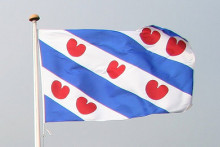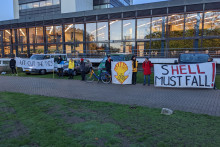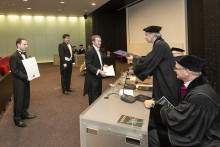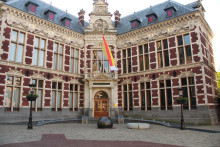The Dutch region of Friesland is famous for its natural beauty and has many environmental qualities that are missing in other parts of the Netherlands. These qualities could be used to develop economic nichessuch as health tourism, a globally growing economic sector. For that reason, students from CSTM (the Department of Governance and Technology for Sustainability at the University of Twente) were asked to review the possibilities of introducing health tourism in Friesland.
Frisian architect
This case study was initiated by Nynke-Rixt Jukema, a young architect, who is very passionate about promoting and developing Friesland. ‘As a part of their Master’s studies, our MEEM students based in Leeuwarden have to conduct a small-scale research with predefined topic that is related to a local issue. Every year, we approach a real stakeholder to provide the students with a realistic issue, which is relevant to the real-life ‘client’ and to Friesland,’ explains Sharon Hophmayer-Tokich, one of the supervisors of the project.
Health tourism in other countries
This year, the students, supervised by Sharon Hophmayer-Tokich, Laura Franco and Yoram Krozer of CSTM, were asked to research if - based on local factors and experience in other countries - health tourism could be implemented in Friesland. They interviewed local stakeholders and analyzed available documentation from countries including UK, Germany, Indonesia, Eritrea and Tanzania. The results of the study have shown that health tourism can be developed in Friesland, given that certain efforts are made.
Changes need to take place
Friesland – with its fresh sea air and rural, unspoiled countryside - could, indeed, be the perfect place for health tourism and treatment of various illnesses, such as asthma. However, the research findings revealed that some changes would have to take place in order for health tourism to be successful in this region.
For instance, general tourism infrastructure (such as accommodation or transportation) needs to be further developed and new regional policies would need to be implemented. On the national scale, campaigns focused on reconnecting with nature should be launched and Friesland should be promoted as the health and nature region of the country.
From national policy perspective, preventive approach to health care should be emphasized and health tourism should be incorporated into the national health care system.
Promoting Friesland
The students presented these findings and recommendations to the project initiator Nynke-Rixt Jukema, who will use them within her activities focused on promoting Friesland. ‘We believe the study has been very helpful to our ‘client’,’ says Hophmayer-Tokich.´The findings and recommendations can be used to approach local authorities and stakeholders and hopefully one day be implemented by policy makers.’







